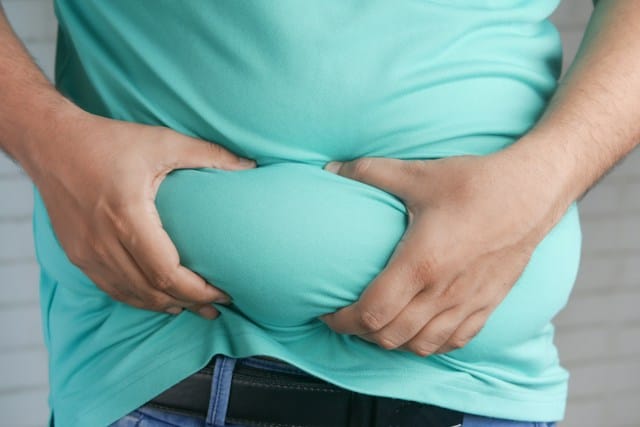Weight loss myths

The pursuit of a healthy weight has become a global obsession, thanks to the media’s glorification of thinness, the rising obesity rates, and an increasing concern for health and wellness. As you aim to keep a healthy weight, you are likely to encounter numerous tips and advice on how to lose weight. However, a large chunk of this information tends to be biased, falsified, or blown out of proportion, leading to the creation of weight loss myths. It’s crucial to separate fact from fiction to avoid harmful practices that might jeopardize your health. This article aims to debunk those myths and provide accurate, scientifically-backed information on weight loss.
Myth #1: All Calories Are Equal
The statement that all calories are the same is misleading. While it’s true that a calorie is a calorie in terms of energy content, the way your body uses these calories can vary significantly depending on the food source. A calorie of protein, for example, will not have the same effect on your body as a calorie of fat or carbohydrate.
En parallèle : The health benefits of acupuncture
The thermic effect of food, which refers to the energy required for digestion, absorption, and disposal of nutrients, is much higher for protein than for fat or carbohydrates. Thus, eating protein-rich foods can boost metabolism, increase feelings of fullness, and reduce appetite more than consuming the same number of calories from carbs or fat.
Moreover, whole foods, like fruits, vegetables, and whole grains, require more energy to digest than processed foods. Hence, a diet rich in whole foods can help you burn more calories and contribute to weight loss.
A lire en complément : The dangers of screens on health
Myth #2: Eating Less Means Losing More
Many people believe that drastically reducing their food intake will lead to rapid weight loss. While it’s true that consuming fewer calories than you burn is fundamental for weight loss, eating too little can be counterproductive.
When you significantly cut your calorie intake, your body goes into "starvation mode." It slows down your metabolism to conserve energy, making it harder for you to lose weight. Besides, such a diet is difficult to maintain in the long run, leading to a cycle of yo-yo dieting, which can harm your health and make weight management more challenging.
Instead of severe calorie restriction, aim for a balanced diet that provides enough energy and nutrients for your body to function correctly and maintain a healthy metabolism.
Myth #3: Fat-Free and Low-Fat Foods Are Better for Weight Loss
Another common myth is that eating fat-free or low-fat foods will help you lose weight. This misconception stems from the fact that fat has more than twice the calories per gram compared to proteins and carbohydrates.
However, removing fat from foods often results in the addition of sugar and other unhealthy ingredients to compensate for the loss of taste. Besides, dietary fats are essential for the absorption of fat-soluble vitamins and the production of hormones. They also provide satiety, preventing overeating.
Therefore, instead of focusing on low-fat or fat-free products, pay attention to the type of fats you consume. Opt for foods high in unsaturated fats, like avocados, nuts, and olive oil, and limit intake of saturated and trans fats found in processed foods.
Myth #4: Skipping Meals Can Help Lose Weight
Skipping meals is another strategy people often use to reduce their calorie intake. While this may lead to temporary weight loss due to fewer consumed calories, it’s not a sustainable or healthy approach.
Skipping meals can lead to extreme hunger, causing you to overeat at your next meal. It can also have negative effects on your metabolism, slowing it down and making weight loss more difficult. Instead, aim for regular, balanced meals filled with lean protein, fiber-rich carbohydrates, and healthy fats to keep your metabolism active and control hunger.
Myth #5: Certain Foods Can Burn Fat
The idea that some foods can burn fat is one of the most enduring weight loss myths. Certain foods, like green tea, hot peppers, and grapefruit, are often touted as "fat-burning" foods. While these foods can slightly increase your metabolism, the effect is too small to lead to significant weight loss.
Weight loss is achieved through a sustained calorie deficit, which can be created by consuming fewer calories, increasing physical activity, or ideally, a combination of both. Including so-called "fat-burning" foods in your diet can contribute to a healthy, balanced diet, but they cannot replace a comprehensive weight loss plan.
Remember, when it comes to weight loss, there are no quick fixes or magic bullets. It’s about making long-term changes to your eating and physical activity habits. Be skeptical of weight loss advice that sounds too good to be true, as it often is. Instead, focus on proven strategies such as consuming a balanced diet, engaging in regular physical activity, and making lifestyle changes that promote sustainable weight management.
Myth #6: Gluten-Free Diets Lead to Weight Loss
Often, there’s a general misconception that gluten-free diets are a surefire way to lose weight. This myth has been perpetuated by an increase in the availability of gluten-free products in the market and endorsements by some celebrities. However, there’s no scientific evidence to support this claim.
Gluten is a protein found in wheat, barley, and rye. Some people, like those with celiac disease, are gluten-intolerant and must avoid foods containing these grains. However, for the general population, a gluten-free diet does not offer any particular weight loss benefits.
On the contrary, many gluten-free products are often higher in calories, fats, and sugars to improve their taste, leading to potential weight gain. Furthermore, these types of diets can lack essential nutrients like fiber, iron, and B-vitamins if not properly planned.
Therefore, unless you have a diagnosed gluten-intolerance or celiac disease, going gluten-free will not necessarily help you lose weight. Always remember, a balanced diet rich in fruits, vegetables, lean proteins, and whole grains is the most effective and sustainable approach to weight management.
Myth #7: Fast Food Always Leads to Weight Gain
The notion that all fast food inevitably leads to weight gain is another common myth. Indeed, many fast-food options are high in calories, unhealthy fats, sugars, and sodium, which can contribute to weight gain and other health problems if eaten in excess.
However, with a little planning and smart choices, it’s possible to include fast food in your diet occasionally without sabotaging your weight loss efforts. Many fast-food chains now offer healthier alternatives like salads, grilled chicken, and low-fat dairy products.
It’s essential to look beyond the marketing claims and review the nutritional information. Make sure you’re aware of the portion sizes and try to incorporate a balanced mix of proteins, carbohydrates, and healthy fats.
While fast food should not be a staple in anyone’s diet, understanding that not all fast food is created equally can help you make healthier choices when you’re in a pinch.
Conclusion
Achieving and maintaining a healthy weight isn’t about following short-term dietary changes or falling for weight loss myths. It’s about adopting long-term, sustainable changes to your lifestyle, which include regular physical activity and balanced nutrition.
Remember, weight loss is not a one-size-fits-all journey, and what works for one might not work for another. It’s important to listen to your body and find what works best for you. Moreover, it’s always advisable to consult with a healthcare provider or a registered dietitian before starting any weight loss plan.
Reject the myths and focus on the facts. A slow and steady weight loss of 1-2 pounds per week is considered healthy and more likely to help you maintain your weight loss in the long term. It’s worth mentioning that the journey of losing weight is not just about the scale but also about improving your overall health and well-being. Stay patient, persistent, and positive on your path to achieving your weight loss goals.
